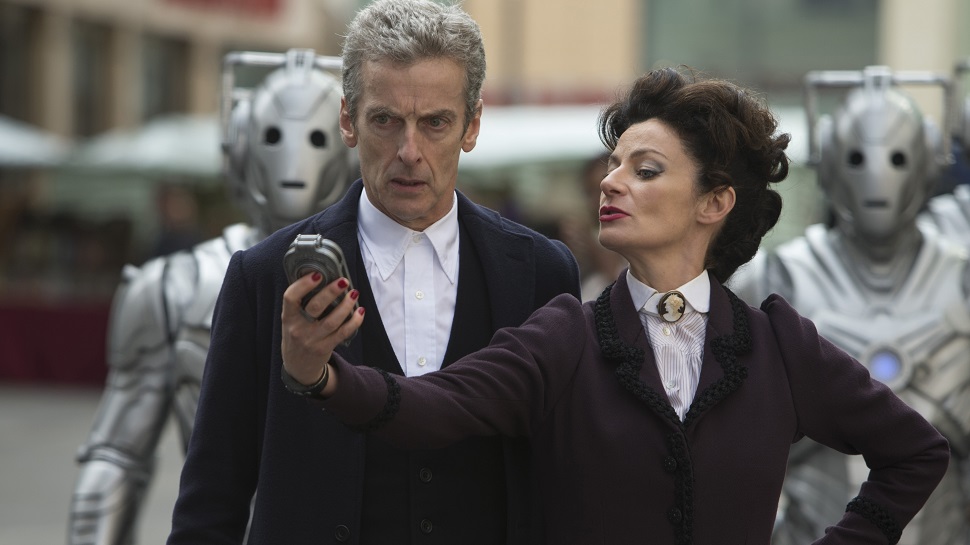A Rather Egotistical Young Lady (The Woman Who Lived)
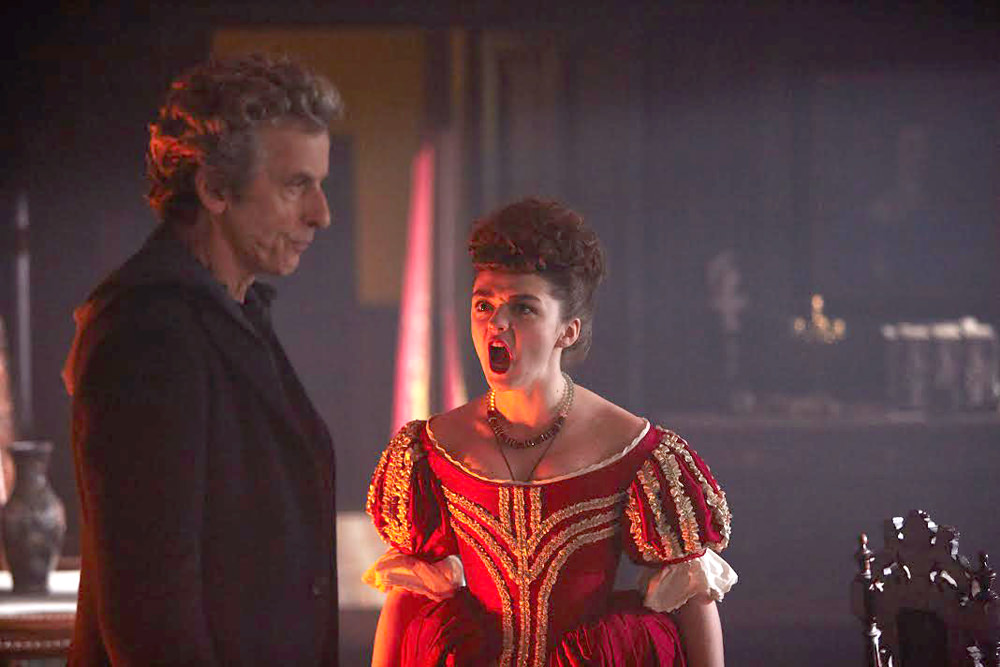 |
| Me takes poorly to the Doctor’s “Varys is a mermaid” theory. |
It’s October 24th, 2015. KDA with Tinie Tempah and Katy B are at number one with “Turn the Music Louder (Rumble).” One Direction and Sleepy Tom & Diplo enter the top ten, while Bieber, The Weeknd, Drake, and Ellie Goulding are still around. In news, Hurricane Patricia, the most intense tropical storm ever to hit the western hemisphere and the second most intense ever, strikes Mexico and deals nearly half a billion dollars in damage. The Tories change rules to weaken the power of Scottish MPs by ruling that laws affecting only England must have a majority vote of English MPs. Hillary Clinton spends eight hours testifying in front of the Benghazi Committee, while Lincoln Chafee and Jim Webb both drop out of the race for the Democratic nomination.
On television, meanwhile, the two-part structure of the season begins to break down with an episode by a completely different writer than its nominal part one. Let’s set aside my decision to cover them separately, which is really a decision about how many words I think I can spend on them and not about them per se. The consensus appears to be to treat these as separate stories—Doctor Who Magazine offered them separate previews (unlike Heaven Sent and Hell Bent), and they seem to consistently be listed separately, but they’re certainly more connected to each other than Utopia is with The Sound of Drums, and The Girl Who Died ends with a clear “to be continued” that presents this as part two. Indeed, to an audience untrained in the Doctor Who fandom art of obsessively following writer credits, it’s difficult to imagine that this would not be viewed as the third two-parter in a row.
Speaking of writerly readings, it is with this episode, in his penultimate season, that Moffat finally addresses the embarrassing problem that his writing teams are consistently all male. This is a tricky needle to thread. “The first female Doctor Who writer in more than seven years” is not something to celebrate in 2015 so much as something to be actively ashamed of. For whatever it’s worth, Moffat recognized that and repeatedly acknowledged that it was a problem, but, well, it still took this long. Still, on the bright side, we have Catherine Tregenna, she of the actually good Torchwood episodes. Her hire for this appears to have been something of a specialist hire—she noted that she never really felt like Doctor Who was a good fit for her, but was specifically pitched writing about an immortal woman and agreed that she could do well with that, which was an obvious conclusion to anyone who’s seen Out of Time or Captain Jack Harkness.
The resulting story is an odd one. For large swaths it’s effectively a two-hander between Capaldi and Williams, which is one of those ideas that’s self-evidently going to work with an even remotely competent script, a bar Tregenna clears by several miles.…

 For all that we’ve been picking on the inadequacies of the standard book line, there had been efforts in the background to try new things. For a variety of reasons we didn’t cover efforts like Summer Falls and The Angel’s Kiss in the late Matt Smith era (actually just one reason, which was me saving things for the book), but they certainly represented one effort to change what the book line can and should do. The Legends of Ashildr represents a stab at another possible shape the books could take—anthologies of several short stories. Obviously there are some constraints around this. Just dumping a couple Doctor Who short story collections a year is an invitation for mediocrity with no obvious sales hooks. Whatever one might say about Big Bang Generation, it at least has a hook you can sell it with in a way that wouldn’t be true of a straightforward collection of shorts.
For all that we’ve been picking on the inadequacies of the standard book line, there had been efforts in the background to try new things. For a variety of reasons we didn’t cover efforts like Summer Falls and The Angel’s Kiss in the late Matt Smith era (actually just one reason, which was me saving things for the book), but they certainly represented one effort to change what the book line can and should do. The Legends of Ashildr represents a stab at another possible shape the books could take—anthologies of several short stories. Obviously there are some constraints around this. Just dumping a couple Doctor Who short story collections a year is an invitation for mediocrity with no obvious sales hooks. Whatever one might say about Big Bang Generation, it at least has a hook you can sell it with in a way that wouldn’t be true of a straightforward collection of shorts.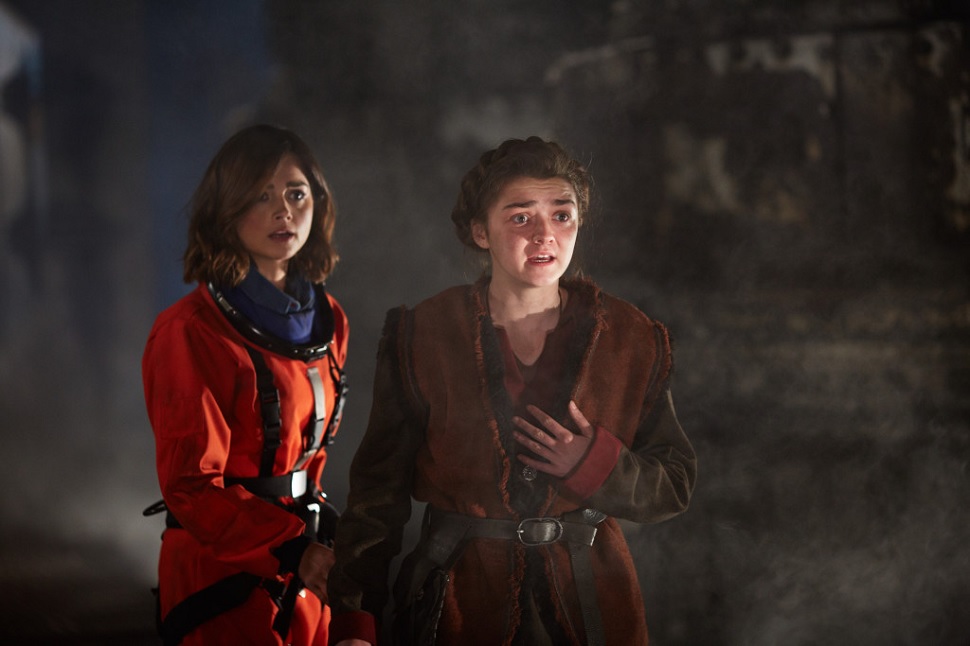
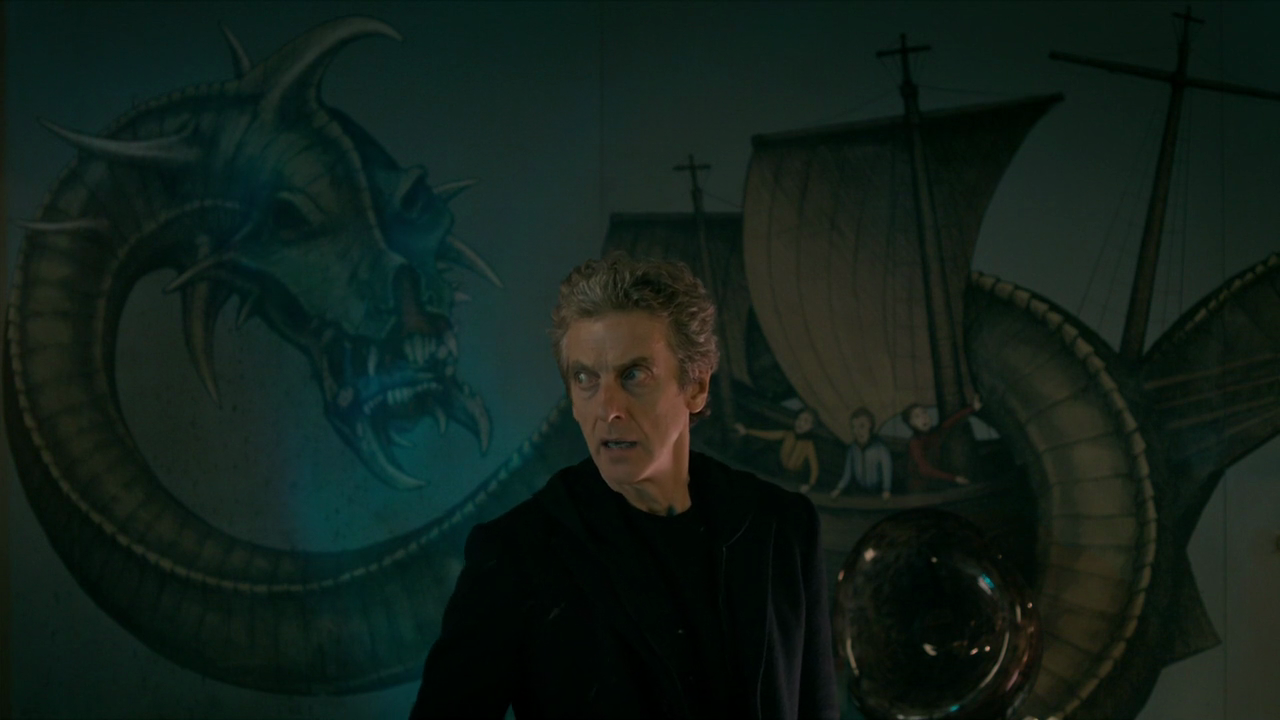

 Books like this always pose something of a problem for the project. On the one hand, a book like this, in which Peter Capaldi’s Doctor goes on an adventure with Bernice Summerfield, is irresistible to a project like this. Once I discovered it existed there was literally never a point where I considered not covering it. The new series intersecting with the Wilderness Years at the point where it’s about to come as close to niche interest as it has been allowed to. The possibilities are vast. Except, of course, for the other hand, which is that it’s by Gary Russell. I ranted a bit in the Blood Cell entry about the inexplicable failure of spinoff media to move beyond the same handful of names who have been around since the Wilderness Years, many of them firmly among the B-list of that era. But Gary Russell takes this to another level, or rather several of them. For one thing, he’s been around far longer than the Wilderness Years, having been a prominent figure in Doctor Who at least since his 1984 Doctor Who Magazine review that described Warriors of the Deep as, and I quote, “a flawless story.” While this can probably be chalked up to the magazine’s official editorial policy of “please Mr. Nathan-Turner can we have some more,” it also proves a distressing augury of his own talents. His novels tend to ostentatiously fill high profile gaps—he’s written Liz Shaw’s departure, Mel’s first appearance, and Colin Baker’s regeneration—but to have little ambition for doing so beyond ticking the relevant boxes, and generally a few more to boot.
Books like this always pose something of a problem for the project. On the one hand, a book like this, in which Peter Capaldi’s Doctor goes on an adventure with Bernice Summerfield, is irresistible to a project like this. Once I discovered it existed there was literally never a point where I considered not covering it. The new series intersecting with the Wilderness Years at the point where it’s about to come as close to niche interest as it has been allowed to. The possibilities are vast. Except, of course, for the other hand, which is that it’s by Gary Russell. I ranted a bit in the Blood Cell entry about the inexplicable failure of spinoff media to move beyond the same handful of names who have been around since the Wilderness Years, many of them firmly among the B-list of that era. But Gary Russell takes this to another level, or rather several of them. For one thing, he’s been around far longer than the Wilderness Years, having been a prominent figure in Doctor Who at least since his 1984 Doctor Who Magazine review that described Warriors of the Deep as, and I quote, “a flawless story.” While this can probably be chalked up to the magazine’s official editorial policy of “please Mr. Nathan-Turner can we have some more,” it also proves a distressing augury of his own talents. His novels tend to ostentatiously fill high profile gaps—he’s written Liz Shaw’s departure, Mel’s first appearance, and Colin Baker’s regeneration—but to have little ambition for doing so beyond ticking the relevant boxes, and generally a few more to boot. I’m not going to faff about pretending the justification for this involves Peter Harness’s chances of someday showrunning Doctor Who. I mean, I’d obviously love if that happened, but I don’t expect it (or think that we’re in a place to talk about who should succeed Chibnall yet anyway). No, the reason I’m picking this as our stopover reality between Last Christmas and the start of Series Nine is more idiosyncratic: having declared Harness’s debut the best Doctor Who story ever, I feel obliged to keep a bit of track of his work.
I’m not going to faff about pretending the justification for this involves Peter Harness’s chances of someday showrunning Doctor Who. I mean, I’d obviously love if that happened, but I don’t expect it (or think that we’re in a place to talk about who should succeed Chibnall yet anyway). No, the reason I’m picking this as our stopover reality between Last Christmas and the start of Series Nine is more idiosyncratic: having declared Harness’s debut the best Doctor Who story ever, I feel obliged to keep a bit of track of his work.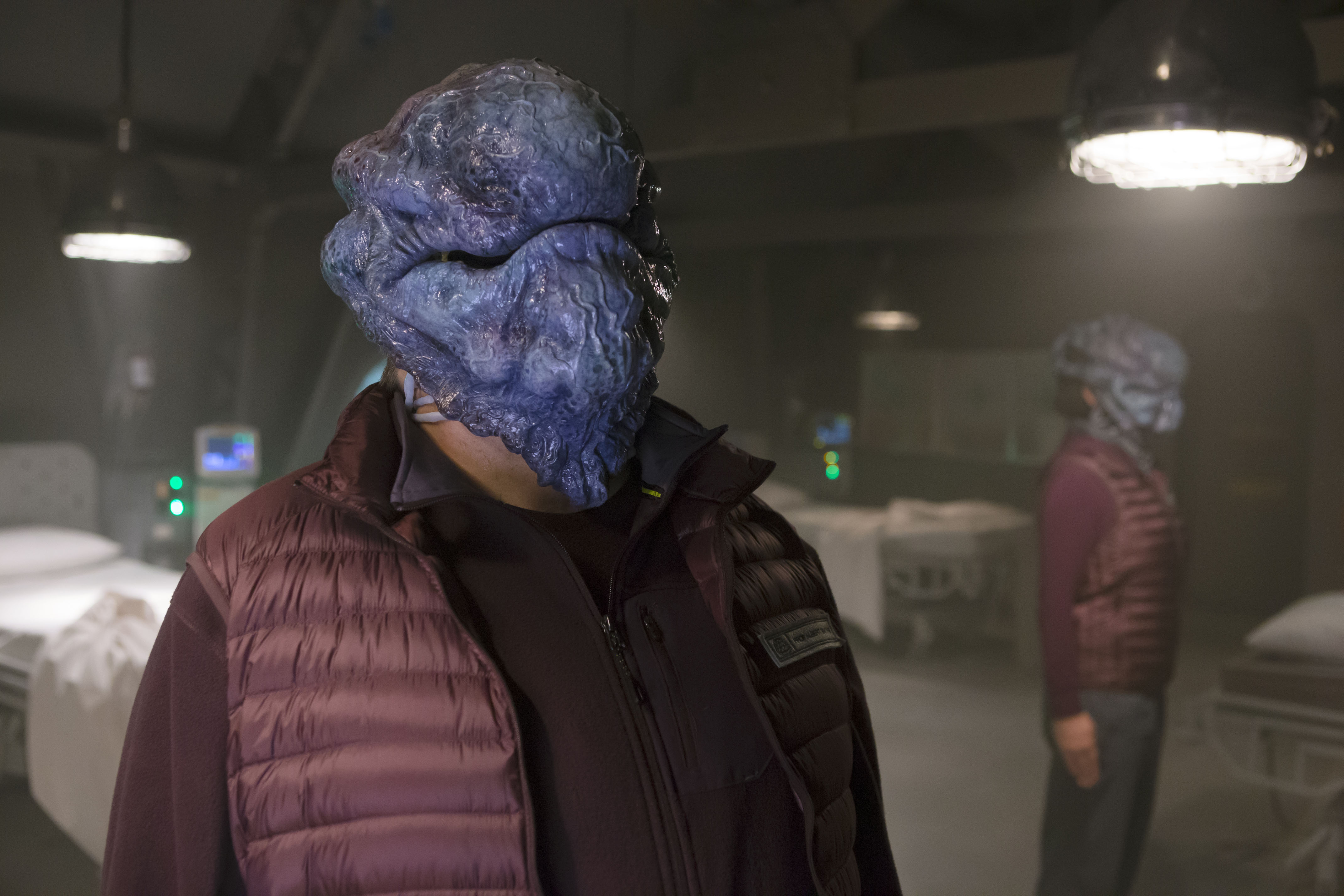
 It’s been a while since Toby Whithouse has entered our tale, and things have changed a lot since then. In the leadup to Twice Upon a Time Moffat joked that he’d had Whithouse write for every season, and the one time he didn’t he made him write two the next season. This is true, but obscures the fact that Whithouse contributed to the first half of the split Series Seven such that there were three full years between A Town Called Mercy and his next contribution. When A Town Called Mercy aired he still seemed like one of the most likely heirs apparent. There remain rumors that in the fuss about Moffat’s slower pace of production than Davies Whithouse had been offered the opportunity of stepping in as some sort of co-showrunner or to helm a single season, which he supposedly declined as the obviously poisoned chalice it was. And my past treatment of his work, going back to covering No Angels as a Pop Between Realities prior to School Reunion, has been rooted in the assumption that he’d probably get the job. Obviously that’s not what happened, though.
It’s been a while since Toby Whithouse has entered our tale, and things have changed a lot since then. In the leadup to Twice Upon a Time Moffat joked that he’d had Whithouse write for every season, and the one time he didn’t he made him write two the next season. This is true, but obscures the fact that Whithouse contributed to the first half of the split Series Seven such that there were three full years between A Town Called Mercy and his next contribution. When A Town Called Mercy aired he still seemed like one of the most likely heirs apparent. There remain rumors that in the fuss about Moffat’s slower pace of production than Davies Whithouse had been offered the opportunity of stepping in as some sort of co-showrunner or to helm a single season, which he supposedly declined as the obviously poisoned chalice it was. And my past treatment of his work, going back to covering No Angels as a Pop Between Realities prior to School Reunion, has been rooted in the assumption that he’d probably get the job. Obviously that’s not what happened, though.